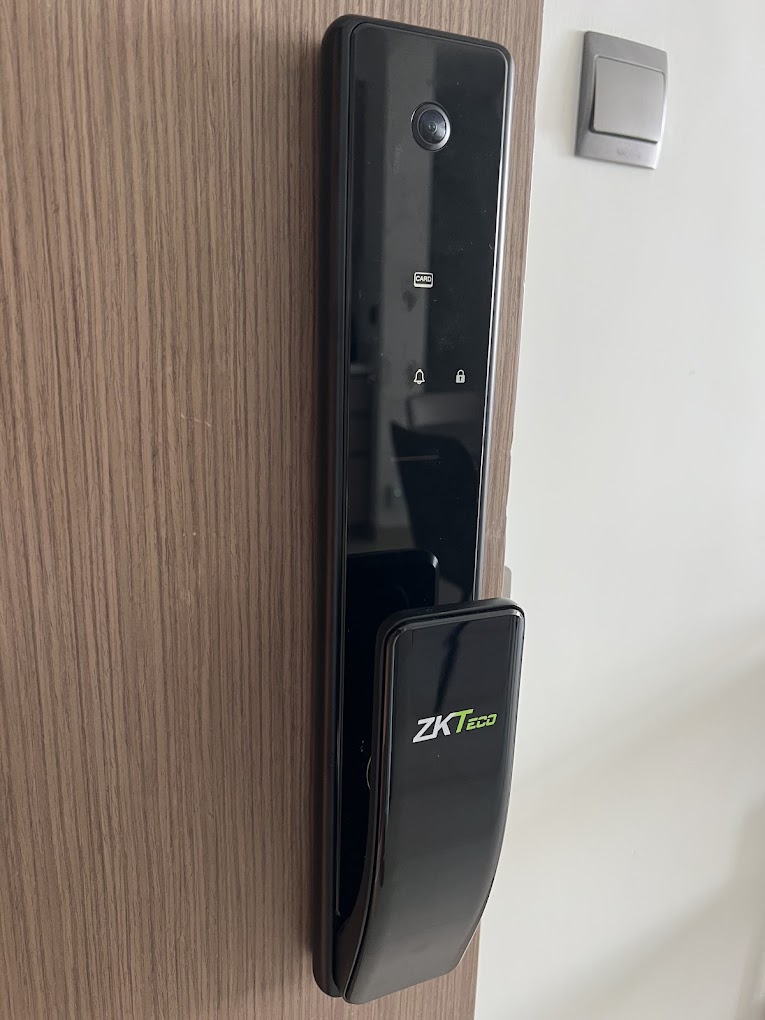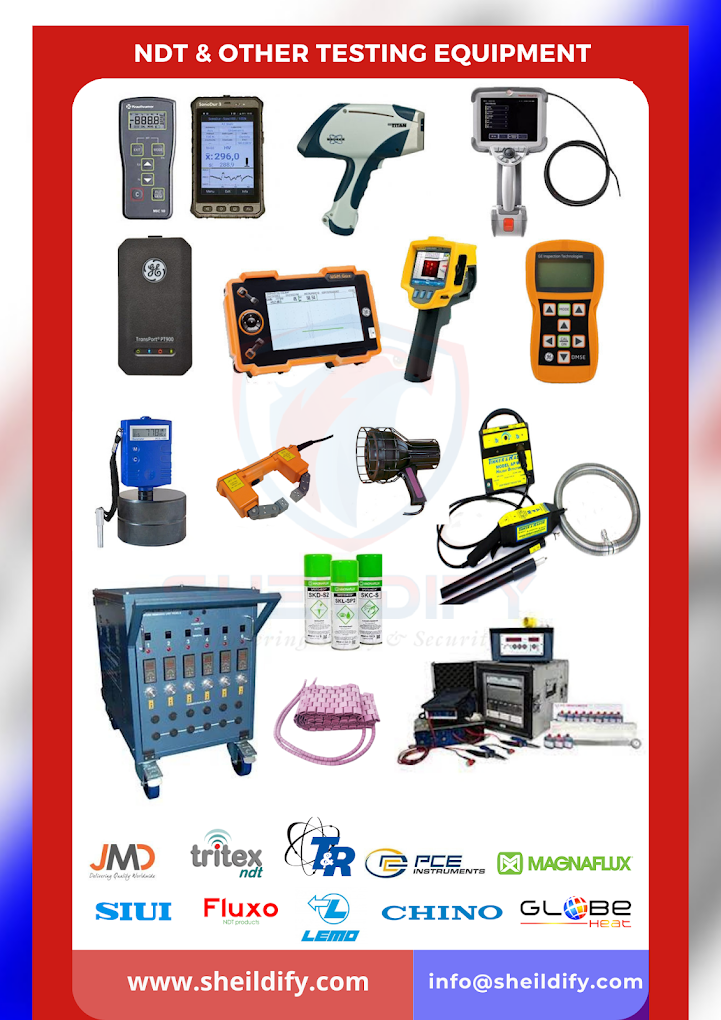Sheildify Security Equipment Trading LLC
Abu Hail - Dubai
Products & Services:
Supplier of CCTV Systems, Biometric Time & Access Control, Data & Networking, Parking Gate Barriers More..
Since : 2020
Abu Hail - Dubai
Products & Services:
Supplier of CCTV Systems, Biometric Time & Access Control, Data & Networking, Parking Gate Barriers More..
Since : 2020
Lab equipment dealers play a vital role in supplying the tools and instruments necessary for various scientific, medical, and research laboratories. From precision scales to advanced diagnostic devices, these dealers provide a wide range of equipment used for testing, research, and analysis. Dubai, being a global hub of innovation and commerce, houses numerous dealers that supply high-quality lab equipment to educational institutions, hospitals, research centers, and industrial laboratories.
Lab equipment dealers are suppliers who specialize in providing a broad range of laboratory instruments, tools, and supplies. These dealers work closely with manufacturers to ensure that the equipment they distribute meets the necessary standards and is suited to the unique requirements of each customer. The equipment provided by these dealers can include scientific instruments, glassware, chemicals, and consumables for various applications. Whether it’s a school lab or a cutting-edge research facility, lab equipment dealers are the go-to resource for acquiring essential tools.
1. Sheildify Security Equipment
Trading LLC
Khalifa BA Balila Building, 22B Street Abu Hail,
Near Abu Hail Masjid Ashram, Abu Hail, Dubai, 39701
Specialty: Security equipment, including lab-related
equipment.
2. Labtech Middle East LLC
P.O. Box 63428, Al Quoz Industrial Area 3, Dubai,
UAE
Specialty: Laboratory equipment, scientific instruments, and
medical devices.
3. Al Shabib Trading Est.
Shop 9, Ground Floor, Bin Abul Malik Building, Near
Dubai Metro Station, Deira, Dubai, UAE
Specialty: Laboratory consumables and materials for
industrial use.
4. Arabian Scientific Equipment LLC
P.O. Box 49964, Ras Al Khor Industrial Area 1,
Dubai, UAE
Specialty: Suppliers of laboratory and scientific research
equipment.
5. Emirates Scientific &
Technical Supplies LLC
P.O. Box 27384, Al Qusais Industrial Area 3, Dubai,
UAE
Specialty: Laboratory apparatus, instruments for educational
and industrial use.
6. Faisal Jassim Trading Co. LLC
Al Quoz Industrial Area 2, Dubai, UAE
Specialty: Laboratory engineering and research equipment.
7. Gulf Scientific Corporation (GSC)
Office 203, DAFZA, Dubai, UAE
Specialty: Scientific laboratory instruments and life
sciences tools.
8. Jebel Ali Laboratory Supplies
FZCO
P.O. Box 61090, Jebel Ali Free Zone, Dubai, UAE
Specialty: Laboratory equipment and chemicals for industrial
and healthcare sectors.
9. Danat Scientific Co. LLC
Office 603, SIT Tower, Dubai Silicon Oasis, Dubai,
UAE
Specialty: Suppliers of testing equipment for labs and
industrial applications.
10. Sigma Enterprises LLC
P.O. Box 262370, Al Barsha 3, Dubai, UAE
Specialty: Laboratory supplies, analytical instruments, and
industrial solutions
Lab equipment dealers are specialized suppliers who provide a wide range of laboratory equipment essential for scientific, educational, and medical research. These dealers cater to various industries, including pharmaceuticals, healthcare, educational institutions, and environmental labs. Their offerings range from basic instruments such as microscopes, beakers, and test tubes to advanced equipment like spectrometers, centrifuges, and autoclaves.
When selecting a lab equipment dealer, consider the following factors:
Quality and Certification: Ensure that the dealer provides certified equipment that meets international standards.
Range of Products: Look for a dealer that offers a broad range of equipment for various needs.
After-Sales Support: Check if the dealer offers installation, maintenance, and repair services.
Reputation and Experience: Opt for dealers with a proven track record and good reviews.
Cost: Compare prices from different dealers and check for any warranties or guarantees
Q1: What
are the common types of lab equipment provided by dealers?
A1: Common types of lab equipment include microscopes, centrifuges,
autoclaves, pipettes, incubators, and pH meters. Advanced labs may require
spectrophotometers, chromatography systems, and thermal analyzers.
Q2: How
do I ensure the quality of lab equipment?
A2: Always verify that the lab equipment is certified and adheres to
international standards like ISO or ASTM. Ask for quality assurance
certificates and check customer reviews about the dealer.
Q3: Can I
get customized lab equipment from a dealer?
A3: Yes, some dealers provide customization services to meet specific
laboratory needs. This could include modifications to equipment size, function,
or materials based on the laboratory’s unique requirements.
Q4: Do
lab equipment dealers provide after-sales support?
A4: Most reputable lab equipment dealers offer after-sales support,
including equipment installation, maintenance, and repairs. Some also provide
training on how to use the equipment effectively.
Q5: What
should I consider when purchasing used lab equipment?
A5: When buying used lab equipment, ensure that it is thoroughly
inspected and in working condition. Ask for the equipment's service history,
check for any warranties, and verify its calibration status.
Q6: How
long is the warranty period for lab equipment?
A6: The warranty period varies depending on the dealer and the type of
equipment. Most dealers offer warranties ranging from one to three years for
new equipment, while used or refurbished equipment may have shorter warranty
periods.
Q7: Do
lab equipment dealers offer equipment rentals?
A7: Yes, some lab equipment dealers offer rental services, which is
beneficial for short-term projects or when buying new equipment is not
cost-effective.
Q8: How
can I dispose of outdated or broken lab equipment?
A8: Lab equipment dealers often offer recycling and disposal services
for outdated or non-functional equipment. They ensure that the disposal is done
according to environmental regulations.
Q9: What
is the typical delivery time for lab equipment?
A9: Delivery time depends on the equipment's availability and location.
Standard in-stock items may take a few days to a week, while specialized or
customized equipment may take several weeks or even months.
Q10: How
can I ensure the safety of my lab equipment?
A10: Regular maintenance, proper calibration, and following manufacturer
guidelines are crucial to ensuring the safety and longevity of lab equipment.
Always train staff on the correct usage of each piece of equipment.

Dubai, Abu Hail

Dubai, Abu Hail
Latest Customer Reviews
"Best place to buy security systems in Dubai"